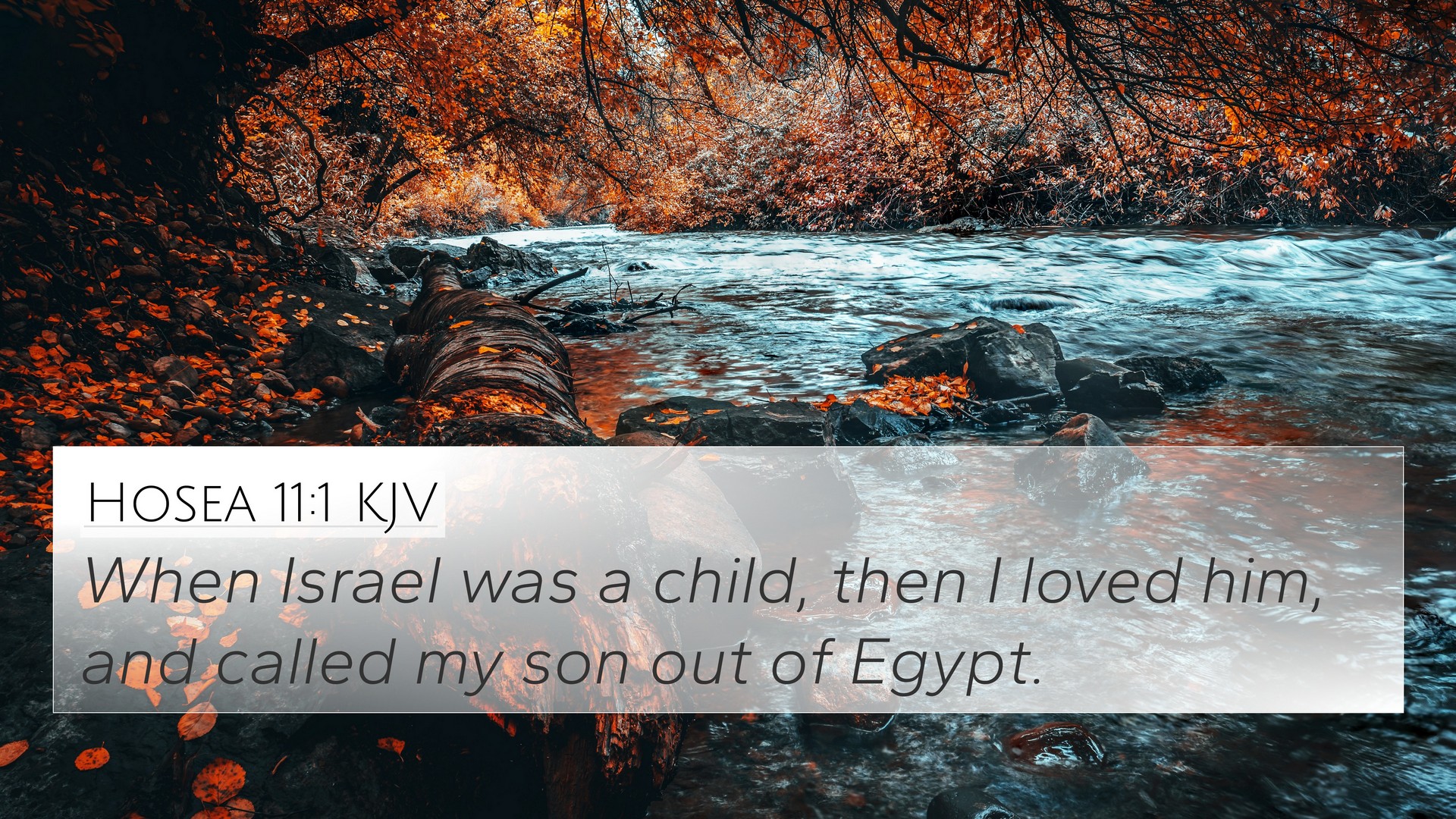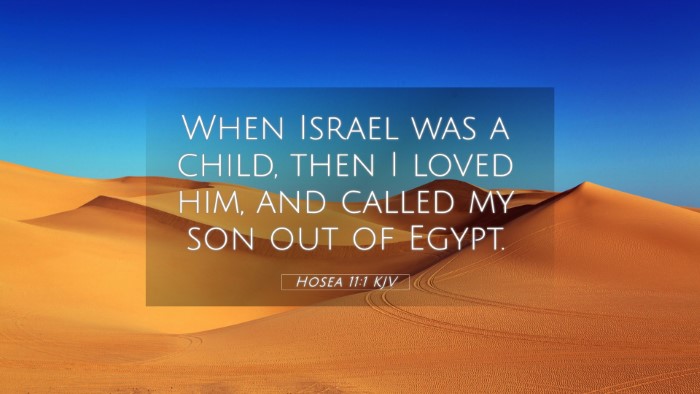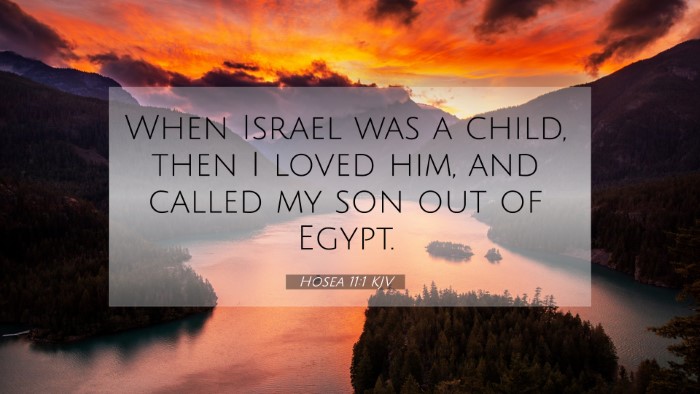Old Testament
Genesis Exodus Leviticus Numbers Deuteronomy Joshua Judges Ruth 1 Samuel 2 Samuel 1 Kings 2 Kings 1 Chronicles 2 Chronicles Ezra Nehemiah Esther Job Psalms Proverbs Ecclesiastes Song of Solomon Isaiah Jeremiah Lamentations Ezekiel Daniel Hosea Joel Amos Obadiah Jonah Micah Nahum Habakkuk Zephaniah Haggai Zechariah MalachiHosea 11:1 Similar Verses
Hosea 11:1 Cross References
When Israel was a child, then I loved him, and called my son out of Egypt.
Uncover the Rich Themes and Topics of This Bible Verse
Listed below are the Bible themes associated with Hosea 11:1. We invite you to explore each theme to gain deeper insights into the Scriptures.
Hosea 11:1 Cross Reference Verses
This section features a detailed cross-reference designed to enrich your understanding of the Scriptures. Below, you will find carefully selected verses that echo the themes and teachings related to Hosea 11:1 KJV. Click on any image to explore detailed analyses of related Bible verses and uncover deeper theological insights.
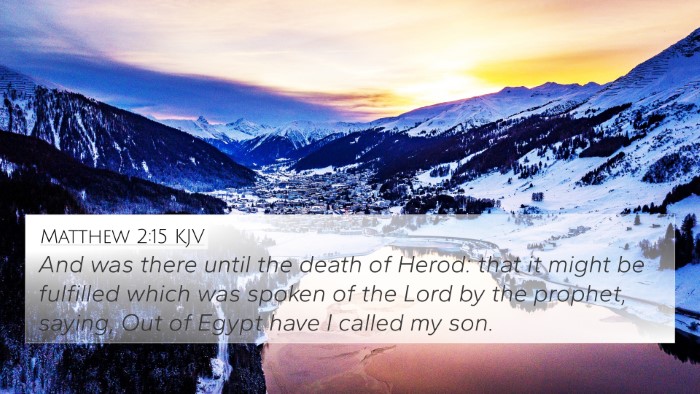
Matthew 2:15 (KJV) »
And was there until the death of Herod: that it might be fulfilled which was spoken of the Lord by the prophet, saying, Out of Egypt have I called my son.
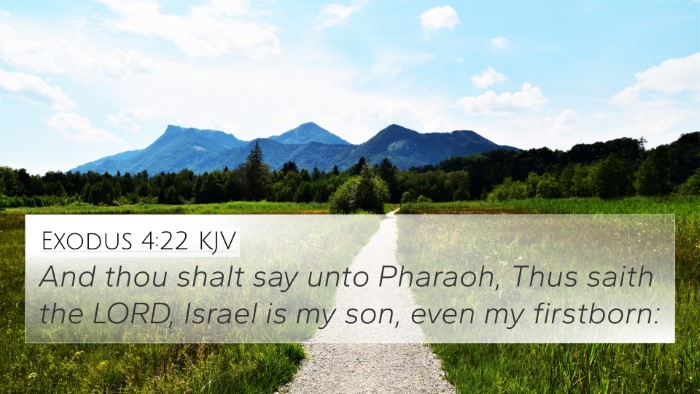
Exodus 4:22 (KJV) »
And thou shalt say unto Pharaoh, Thus saith the LORD, Israel is my son, even my firstborn:
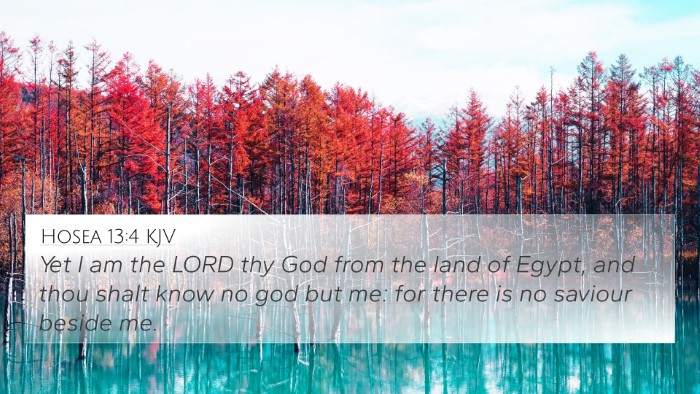
Hosea 13:4 (KJV) »
Yet I am the LORD thy God from the land of Egypt, and thou shalt know no god but me: for there is no saviour beside me.
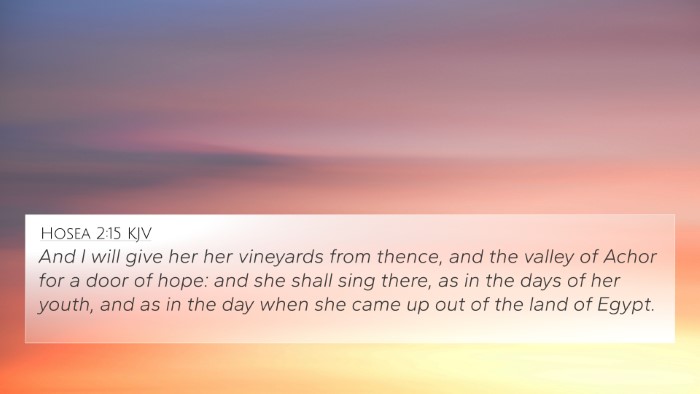
Hosea 2:15 (KJV) »
And I will give her her vineyards from thence, and the valley of Achor for a door of hope: and she shall sing there, as in the days of her youth, and as in the day when she came up out of the land of Egypt.
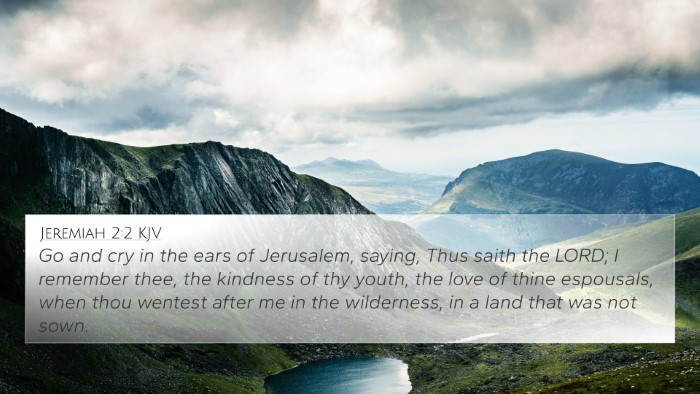
Jeremiah 2:2 (KJV) »
Go and cry in the ears of Jerusalem, saying, Thus saith the LORD; I remember thee, the kindness of thy youth, the love of thine espousals, when thou wentest after me in the wilderness, in a land that was not sown.
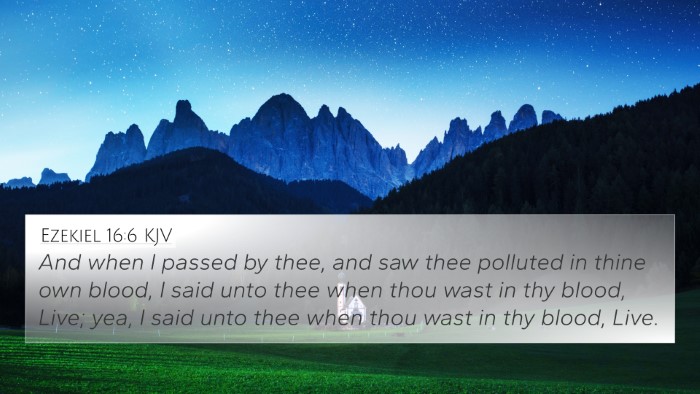
Ezekiel 16:6 (KJV) »
And when I passed by thee, and saw thee polluted in thine own blood, I said unto thee when thou wast in thy blood, Live; yea, I said unto thee when thou wast in thy blood, Live.
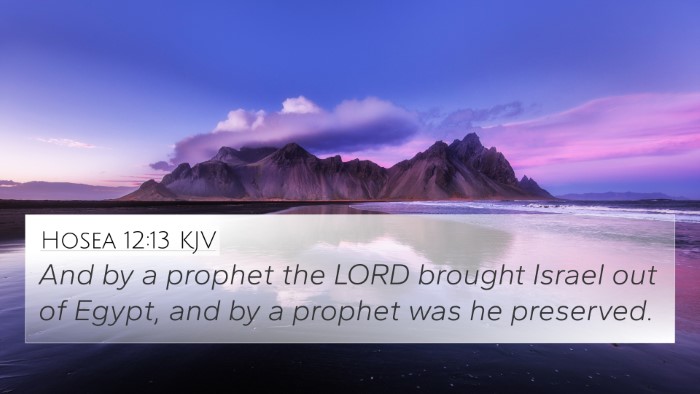
Hosea 12:13 (KJV) »
And by a prophet the LORD brought Israel out of Egypt, and by a prophet was he preserved.
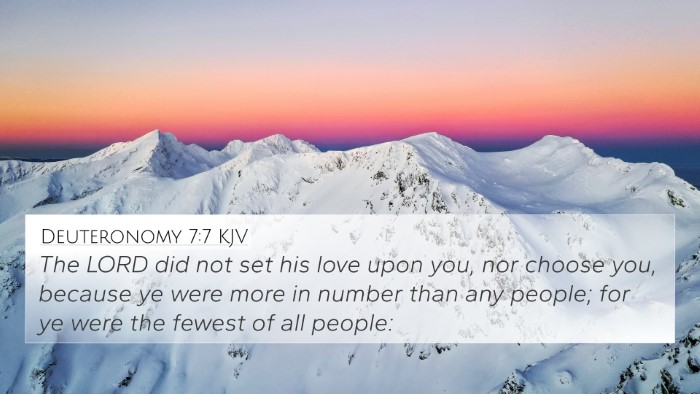
Deuteronomy 7:7 (KJV) »
The LORD did not set his love upon you, nor choose you, because ye were more in number than any people; for ye were the fewest of all people:
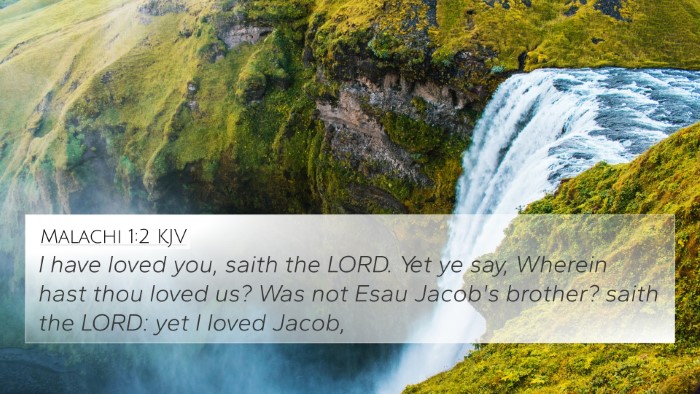
Malachi 1:2 (KJV) »
I have loved you, saith the LORD. Yet ye say, Wherein hast thou loved us? Was not Esau Jacob's brother? saith the LORD: yet I loved Jacob,
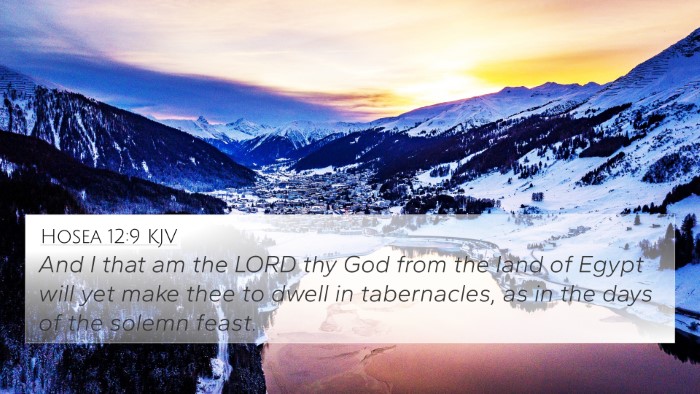
Hosea 12:9 (KJV) »
And I that am the LORD thy God from the land of Egypt will yet make thee to dwell in tabernacles, as in the days of the solemn feast.
Hosea 11:1 Verse Analysis and Similar Verses
Understanding Hosea 11:1
Hosea 11:1 states: "When Israel was a child, then I loved him, and called my son out of Egypt." This verse serves as a poignant reminder of God's deep love for Israel and His active involvement in their history.
Verse Meaning and Interpretation
This verse captures the essence of God's relationship with Israel, portraying them as His child. The imagery suggests tenderness and intimacy, emphasizing God's parental love. The phrase "I loved him" reflects not just a past affection but an ongoing commitment.
Contextual Insights
According to Matthew Henry, this passage illustrates God's covenantal love and faithfulness to Israel, despite their repeated disobedience. Henry notes that God's love is personified as that of a father, which invites a reflection on divine mercy and grace.
Albert Barnes elaborates further, associating the verse with the historical context of the Exodus. He points out the importance of God's call for Israel to leave Egypt, which symbolizes liberation from bondage. This action highlights a pivotal moment in Israel's identity as God's chosen people.
Adam Clarke connects the verse to the larger narrative of salvation, noting that “calling my son out of Egypt” not only refers to Israel but foreshadows the New Testament revelation when Jesus is called from Egypt to fulfill prophecies. This duality enriches our understanding of the verse, illustrating the inter-Biblical dialogue.
Cross-References and Thematic Connections
Hosea 11:1 resonates with several other biblical verses that reflect God's nurturing of His people and the theme of deliverance:
- Exodus 4:22-23: God refers to Israel as His firstborn, echoing His paternal love.
- Matthew 2:14-15: Refers to Jesus being taken to Egypt and called back, reinforcing the connection to Hosea.
- Isaiah 63:9: Expresses God's compassion and redemption for His people in their afflictions.
- Psalms 72:12-14: Speaks of God rescuing the needy and afflicted, aligning with His character as a protector.
- Jeremiah 31:9: Describes God leading His people back from exile, highlighting His role as a guide and father.
- Luke 1:68-75: Zechariah’s prophecy acknowledges God’s fulfillment of His covenant with His people.
- Galatians 4:4-5: Discusses Christ’s coming and liberation, tying back to Hosea’s themes of sonship and deliverance.
- Romans 9:4-5: Affirms Israel's place as God's chosen people and His past actions of love.
- 2 Corinthians 6:18: God’s declaration of His people as sons and daughters, resonating with the paternal imagery.
- Revelation 21:7: Ends with God's promise of being with His people, containing the essence of a father-son relationship.
Thesis of Cross-Referencing
This verse provides profound insight into God's character and His relationship with His people. By employing a Bible cross-reference guide, readers can explore how these connections shape a broader understanding of the theme of deliverance throughout Scripture.
Tools for Bible Cross-Referencing
To delve deeper into these connections, consider utilizing tools for Bible cross-referencing:
- Bible concordance: Helps in finding specific themes or words across Scriptures.
- Cross-reference Bible study: Offers methods to compare verses and themes.
- Bible reference resources: Useful for expanding biblical study and knowledge.
- Cross-referencing Bible study methods: Provide strategies to identify interconnections.
- Comprehensive Bible cross-reference materials: Essential for deeper theological research.
Conclusion
Hosea 11:1 reflects the profound love and commitment God has for His people. By exploring this verse alongside its cross-references, one can appreciate the richness of God's narrative throughout both the Old and New Testaments. Understanding the connections between Bible verses enhances our comprehension of biblical themes, allowing for a more robust faith and interpretation. As we study these scriptures, we are reminded of God's enduring promise and His compassionate nature towards His children.
